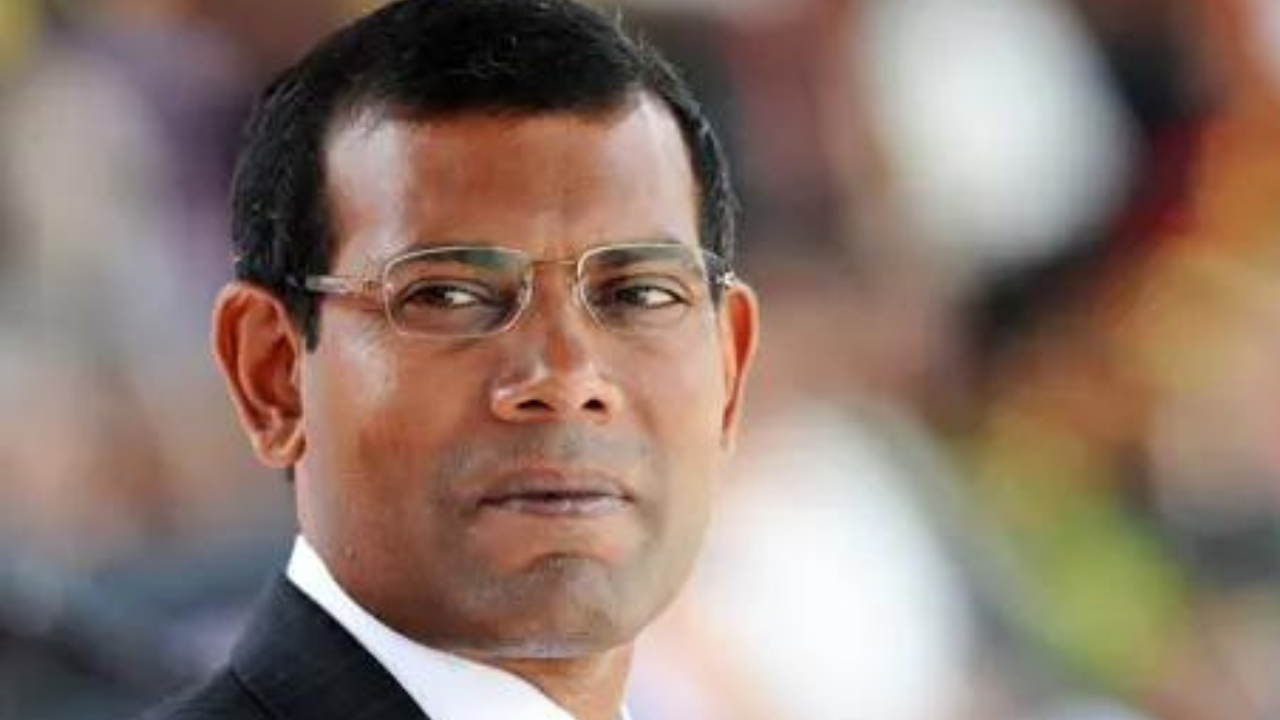‘People of Maldives are sorry’: Ex-president Nasheed on impact of boycott by Indians

NEW DELHI: The Maldives government led by pro-China leader Mohamed Muizzu will soon “settle down” and its “foreign policies and relations with India will go back to business as usual”, said former president of the island nation, Mohamed Nasheed, on Friday.
Nasheed, who is currently in India and met PM Modi on Thursday night, also voiced significant concerns regarding the ramifications of ‘Boycott Maldives‘ campaign by Indians.The boycott was launched after some Maldivian lawmakers made derogatory comments about Prime Minister Narendra Modi when he visited Lakshadweep.
The former president highlighted the impact of the boycott on the Maldives, stating, “It has impacted the Maldives a lot, and I am actually here in India. I am very worried about this. I want to say the people of the Maldives are sorry, we are sorry that this has happened. We want Indian people to come on their holidays to the Maldives, and there will not be any change in our hospitality.”
Reflecting on historical ties, Nasheed underscored India’s responsible approach during past challenges, stating, “When the president of the Maldives wanted the Indian military personnel to leave, you know what India did? They did not twist our arms. They did not display muscles, but told the Maldivan government to discuss .. that is the action of a responsible superpower. It is not a ‘bully’.”
Bilateral ties hit
India-Maldives ties have suffered a setback ever since Muizzu assumed office last year.
Hours after he took oath in November 2023, Muizzu had vowed to ensure Maldives’ “sovereignty” and one of the first steps was to demand India to withdraw all its troops.
He also broke from tradition and decided to go to Beijing on his maiden foreign trip instead of New Delhi.
The opposition in the island nation has repeatedly hit back at Muizzu for his ‘anti-India’ stance and has slammed him for pivoting the country’s foreign policies towards China.
People-based ties: Nasheed
Asserting that India-Maldives relation is people based rather then government centric, Nasheed said: “India and the Maldives have many similarities in our culture. The relationship is actually people-to-people, not government-to-government.”
“In South Asia, this happens a lot when the government changes, we swing from one side to another but I think that it is important that we maintain our relations in a straight line,” he added.
“Unfortunately, the new government has inherited anti-Indian sentiment and that was the rhetoric they used in the elections, however, I believe that once they (the current Maldives government) settle down they will understand the intricacies of the governance, therefore, our foreign policies and relations with India would go business as usual,” said Nasheed — the first democratically elected president of Maldives.
On Chinese investment in Maldives and whether the country is heading toward a debt trap, Nasheed said: “There are different Chinese entities that have given loans to the Maldives and these loans were spent on the price of the project that was very high, it was high to the extent that business planed failed and when the business plan fails you cannot pay the loan from that infrastructure. When we cannot pay the loan back they ask for equity and with equity we lose sovereignty. Hence this is very crucial, we have to be mindful of this. We always have to get the best price as we cannot sell our assets at lower prices, we cannot do work at higher prices.”
Pro-China leader
In the last few months, Muizzu has pivoted the island nation’s policies decidedly in favour of China.
Recently, China signed a defence cooperation agreement with the Maldives to provide free military assistance to foster “stronger” bilateral ties.
Muizzu has also announced that the Maldives will not renew an agreement with India to conduct hydrographic surveys and plans to acquire the facilities and machines required to do the exercise by itself.
He further said that his country is working to establish a 24×7 monitoring system for the Maldivian waters this month to ensure control of its Exclusive Economic Zone (EEZ) despite its significantly large area.
(With inputs from agencies)
